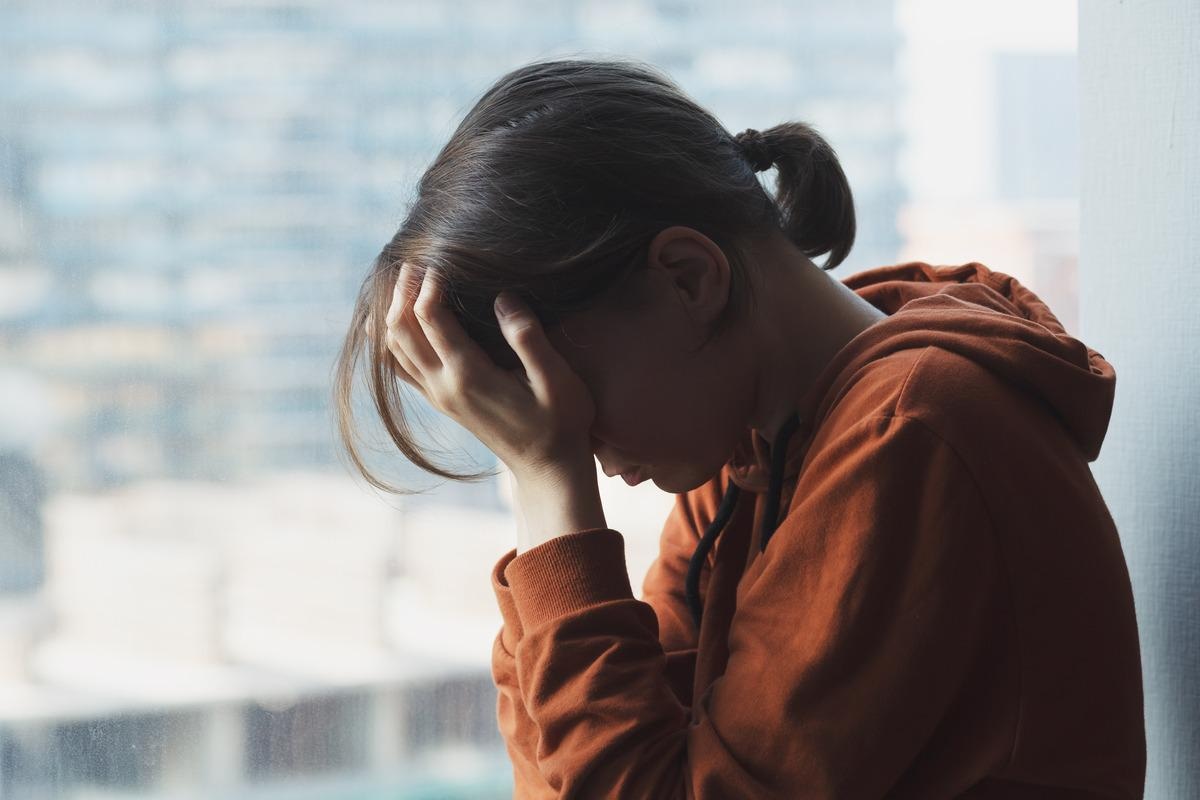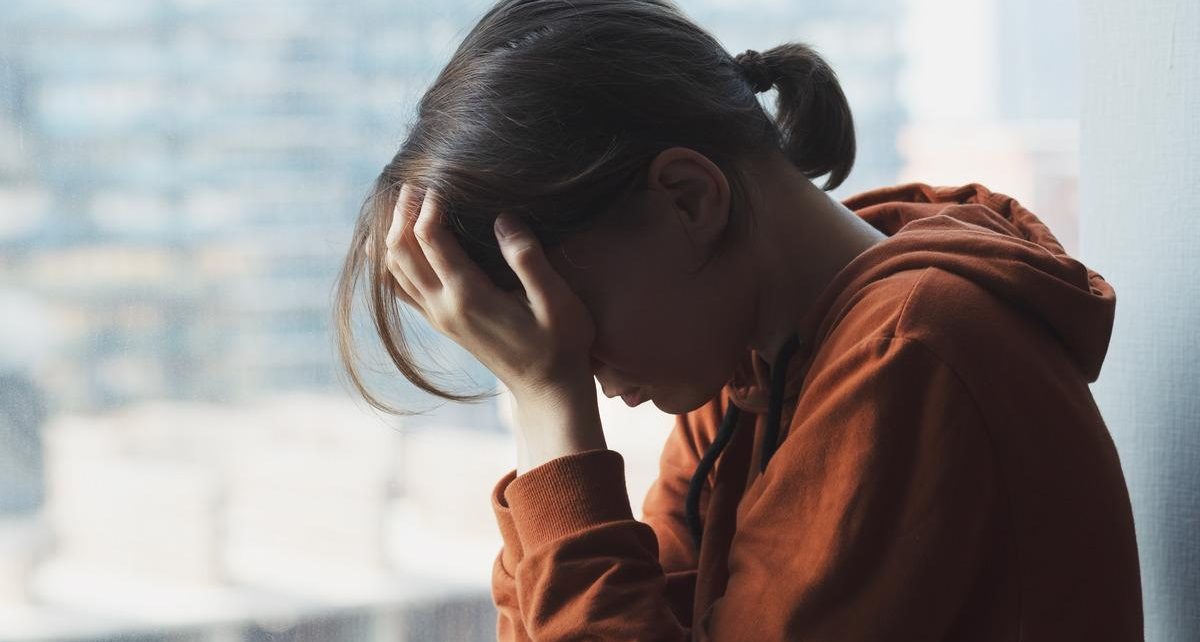In a recent retrospective cohort study of mental health and wellbeing of adolescents posted to the medRxiv* preprint server, researchers investigated the incidence of psychiatric diagnoses of Israeli adolescents before and during the coronavirus disease 2019 (COVID-19) pandemic.
 Study: Mental health assessment of Israeli adolescents before and during the COVID-19 pandemic. Image Credit: Alina Kruk/Shutterstock
Study: Mental health assessment of Israeli adolescents before and during the COVID-19 pandemic. Image Credit: Alina Kruk/Shutterstock
Ever since the COVID-19 pandemic began, the measures adopted worldwide to address the pandemic-related health crises have led to several disruptions of the normal life of children and adolescents. The implementation of national and local lockdowns that disrupted school activities has negatively impacted the younger population's lives. Reports of an increase in depression, anxiety, and eating disorders have surfaced during the COVID-19 pandemic, particularly among girls.
The study
In the present study, a team of researchers assessed the mental illness in Israeli youth before and during COVID-19 from their electronic health records (EHR). Data for the study were collected from Maccabi Health Services (MHS), and the participants were aged 12-17 between November 1st, 2016, and November 1st, 2021.
The study categorized mental health diagnoses into four types:
1) depression,
2) anxiety and OCD disorders,
3) adjustment and emotional problems and stress, and
4) eating disorders,
and drugs into three types:
1) antidepressants,
2) anxiolytics, and
3) antipsychotics.
Study findings
The researchers assessed the health records of more than 200,000 adolescents on an average per year. About 51.1% of the study population was male, over 80% were general Jews, around 12% were ultra-orthodox Jews, and 7.5% were Arabs. Over time, an increase in incidence rates for mental diagnoses and medication was observed; however, the increase was relatively higher during the COVID-19 period. The incidence of depression was 4.0 per 1000 in 2017, while it was 5.7 per 1000 adolescents in 2021.
A non-significant increase in incidence rates of depression, anxiety, and eating disorders was observed in 2019 relative to 2017 figures. However, a significant increase in the incidence of mental conditions was reported in 2021 relative to pre-COVID-19 numbers in the year 2019.
The study observed that the increase in mental health conditions was more in girls. A 42% increase in the use of antidepressants was noted among girls during the COVID-19 pandemic; similarly, a 68% increase in the use of antipsychotics was reported during the COVID-19 pandemic compared to a 15% increase in pre-COVID-19 times. In boys, anxiety was the only mental condition with significantly higher figures during the pandemic.
Demographic analyses revealed that the general Jewish population showed higher rates of mental health diagnoses during the pandemic, and the ultra-orthodox Jews or the Arabs did not report any significant changes in most of the mental conditions during COVID-19. The authors noted a 28% and 56% increase in the incidence of anxiety among ultra-orthodox Jews and Arabs, respectively, during the COVID-19 pandemic.
Conclusions
The findings reported in this study presented evidence of an increase in mental health conditions in the younger population during the COVID-19 pandemic highlighting the significant impact caused by disruption of normal activities as part of measures imposed to manage the COVID-19 pandemic. Unlike other studies, the researchers conducted this study quantitatively to measure and evaluate the mental health diagnoses rather than conducting surveys.
The lack of physical activity and healthy daily routines, social isolation due to prolonged school closures, and the fear of contracting COVID-19 could have been the most plausible reasons for the significant increase in depression, anxiety, and eating disorder incidence rates.
Moreover, the findings reported the increased mental risk perceived in girls (12-17-year-olds) for the first time during the COVID-19 pandemic, which could suggest that the restrictions imposed due to the pandemic could affect girls relatively more than boys, while the increase could also be due to higher communication and sharing of mental disorders by girls with their parents.
The study observed no significant changes in the mental health conditions in the ultra-orthodox Jews, probably because they were less exposed to media and were heavily inclined to their faith and community.
The authors suggested that the current findings into the lifestyle and mental health changes of adolescents should be considered before implementing any newer measures to curb the rise of COVID-19 cases driven by the new severe acute respiratory syndrome coronavirus-2 (SARS-CoV-2) Omicron variant.
*Important information
medRxiv publishes preliminary scientific reports that are not peer-reviewed and, therefore, should not be regarded as conclusive, guide clinical practice/health-related behavior, or treated as established information.
-
Bilu, Y. et al. (2022) "Mental health assessment of Israeli adolescents before and during the COVID-19 pandemic". medRxiv. doi: 10.1101/2022.01.06.22268809. https://www.medrxiv.org/content/10.1101/2022.01.06.22268809v1
Posted in: Medical Science News | Medical Research News | Disease/Infection News
Tags: Adolescents, Anxiety, Children, Coronavirus, Coronavirus Disease COVID-19, covid-19, Depression, Drugs, Eating Disorder, Mental Health, Omicron, Pandemic, Physical Activity, Respiratory, SARS, SARS-CoV-2, Severe Acute Respiratory, Severe Acute Respiratory Syndrome, Stress, Syndrome

Written by
Susha Cheriyedath
Susha has a Bachelor of Science (B.Sc.) degree in Chemistry and Master of Science (M.Sc) degree in Biochemistry from the University of Calicut, India. She always had a keen interest in medical and health science. As part of her masters degree, she specialized in Biochemistry, with an emphasis on Microbiology, Physiology, Biotechnology, and Nutrition. In her spare time, she loves to cook up a storm in the kitchen with her super-messy baking experiments.
Source: Read Full Article



